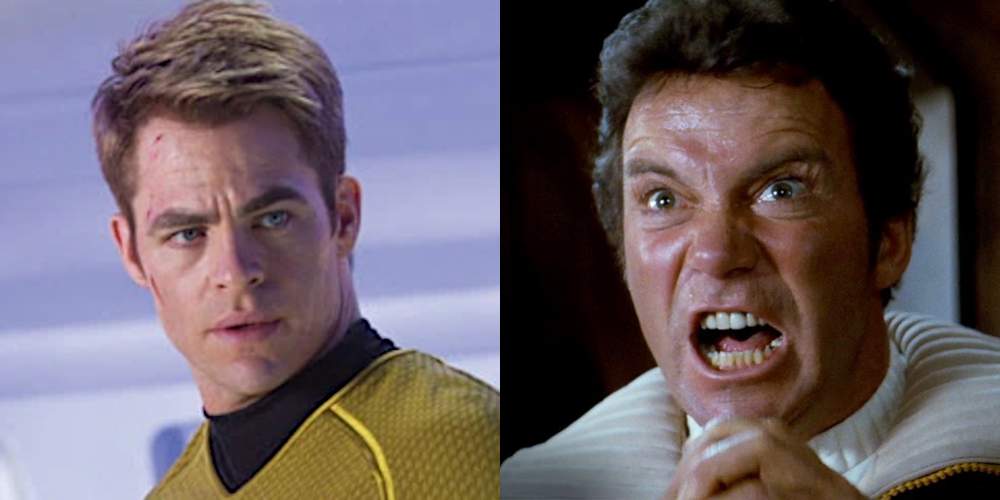It's difficult to compare two different films from different decades, especially as far as which one is "better" than the other. In the case of the Star Trek franchise, there are two films based on the same story but share very little else in common.
Star Trek II: The Wrath of Khan is a beloved sci-fi classic that sees Kirk's old adversary, Khan Noonien-Singh, return to hunt down and destroy the man that left him to rot on a dying planet years before.
Star Trek Into Darkness is a loose adaptation of that Khan storyline, which sees the feared warrior wage a solo war against Starfleet for the kidnapping and assumed death of his crew.
Both films are vastly different when it comes to tone, with Into Darkness being J.J. Abrams' attempt to bring Khan Noonien-Singh into a newer, more modern era of Star Trek movies.
Which one is better, the 1982 original or the 2013 remake? Here's our comparison of Star Trek II: The Wrath of Khan versus Star Trek Into Darkness and how they fare together.
Overall Direction
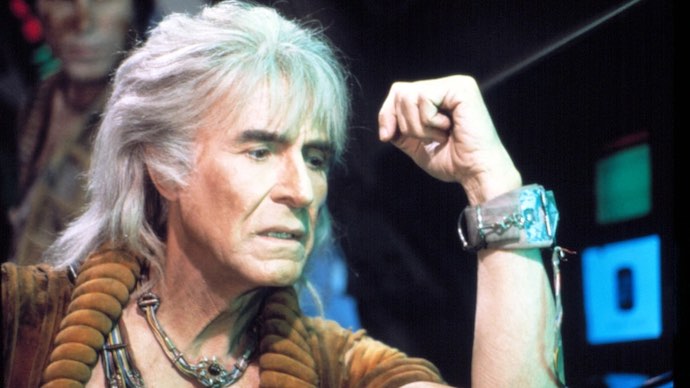
Most people today know about J.J. Abrams, but they aren't familiar with the career work of Nicholas Meyer, the director of Star Trek II: The Wrath of Khan. For that reason alone, most tend to side with Abrams as the superior sci-fi storyteller.
But when you pit both films side-by-side, Meyer's work can't be underestimated. He managed to create a sense of tension throughout the film without ever having Khan and Kirk meet one another in person.
Meyer drew exquisite performances from his leading actors, with William Shatner and Leonard Nimoy at their very best under Meyer's delicate direction. Meanwhile, Ricardo Montalbán's Ahab-like madness gave the Enterprise their greatest threat—and an impressive adversarial chest.
On the other hand, Abrams leaned on Meyer's work enough that Into Darkness can be called a remake, but not so much that it can be considered a rip-off. He made a strong hire in Benedict Cumberbatch to replace Montalbán in the role of Khan.
On balance, Meyer did a better job in the director's chair than Abrams. He managed to find a way to work with the egos of his actors—who all knew their roles inside out—while creating a tale that made Star Trek feel like a work of classic literature.
Khan's Portrayal
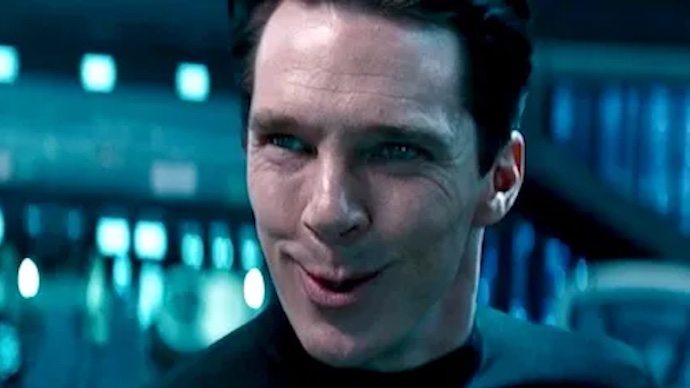
The silliest part about both Ricardo Montalbán and Benedict Cumberbatch portraying Khan is that neither have Indian heritage.
Montalbán is South American while Cumberbatch is British, meaning neither should have been handed the role in the first place. However, with that aside, how well did each one actually do in the role?
The two actors draw entirely different performances from the material they found in their scripts: Montalbán had a more Shakespearean take on the character than the more terrorist-minded Cumberbatch.
Looking back at Montalbán's Khan, he's an impressive warlord who seeks revenge against Kirk for abandoning him and his crew on a desolate planet—something that wasn't the fault of Kirk.
As the original Khan, Montalbán—who also portrayed the villain in the actual series—was fearsome due to his ability to command and his enhanced body that was designed by eugenics.
However, Cumberbatch chose to give Khan a more outwardly ruthless exterior with no mind for posturing or taunting. Instead, he replaced the self-aggrandization with a burning rage felt through the screen.
Moreso, Cumberbatch's Khan felt smarter than Montalbán's. He used whomever he could to gain the upper hand, knowing his physical superiority was enough to fall back on should anything turn against him.
In the end, Cumberbatch wins simply because of his menace and terrifying single-minded mission of destruction.
Emotional Impact
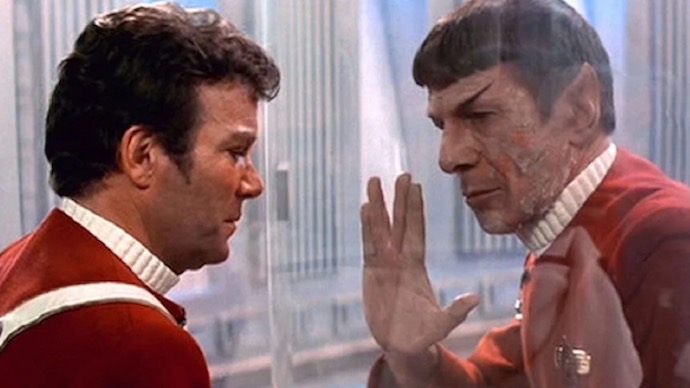
The entire point of Spock's role in The Wrath of Khan was to die at the end because Leonard Nimoy wanted to bow out after almost two decades in the role. Meanwhile, Into Darkness flipped the script on Spock's death and gave the heroic sacrifice to Kirk (who's later revived, anyway).
Though the films handled their situations differently, the plot point is almost identical: both have to save the Enterprise by fixing the core, becoming exposed to lethal radiation in the process.
Into Darkness is no slouch when it comes to its big moment, with Spock watching Jim die from the other side of protective glass—then subsequently becoming angry enough to hunt down Khan himself.
However, the final moments of The Wrath of Khan, in which Kirk says goodbye to Spock after he's saved the Enterprise from destruction, is heartbreaking. The funeral scene shows the depth of emotion Kirk has for Spock when he breaks while delivering the eulogy.
Between the two, there is no contest: The Wrath of Khan has far more depth of emotional impact than Into Darkness.
Overall Performances
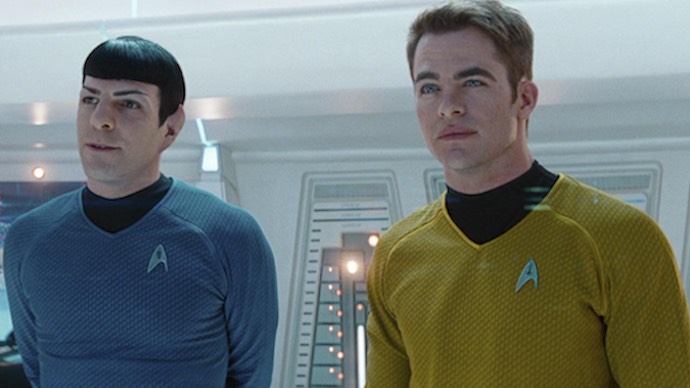
Both movies feature impressive ensemble performances that are great examples of how to showcase life on a starship.
Into Darkness succeeds in its smaller moments, as the relationship between Kirk and Spock becomes solidified by loss while the rest of the crew find their places under Kirk's leadership.
However, with The Wrath of Khan, the crew had already been on many adventures together for years on the series. This gave the film's performances a different dynamic with all the pre-established depth and history between the characters.
There's a sense of fun distrust in Into Darkness that doesn't exist in The Wrath of Khan, while the core of the original feels deeper with the wealth of experience we'd already had with the characters.
Ultimately, this one comes down to what you prefer in a sci-fi film, but we're giving it to The Wrath of Khan for better ensemble performance.
And the Verdict Is...
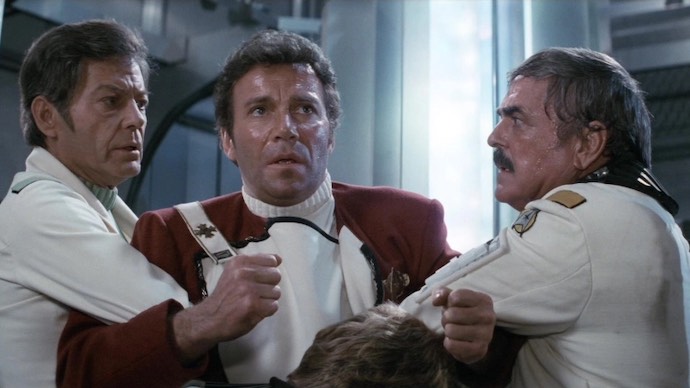
Between the two films, one ekes out ahead of the other, but not by much. The winner is Star Trek II: The Wrath of Khan!
There's plenty to like about Star Trek Into Darkness, which benefits from modern filmmaking technology and an updated story that's vibrant and fun in a new way.
But there's a reason why The Wrath of Khan is a sci-fi classic. It simply has a depth that the remake lacks, along with a sense of intimidation that's hard to replicate.
